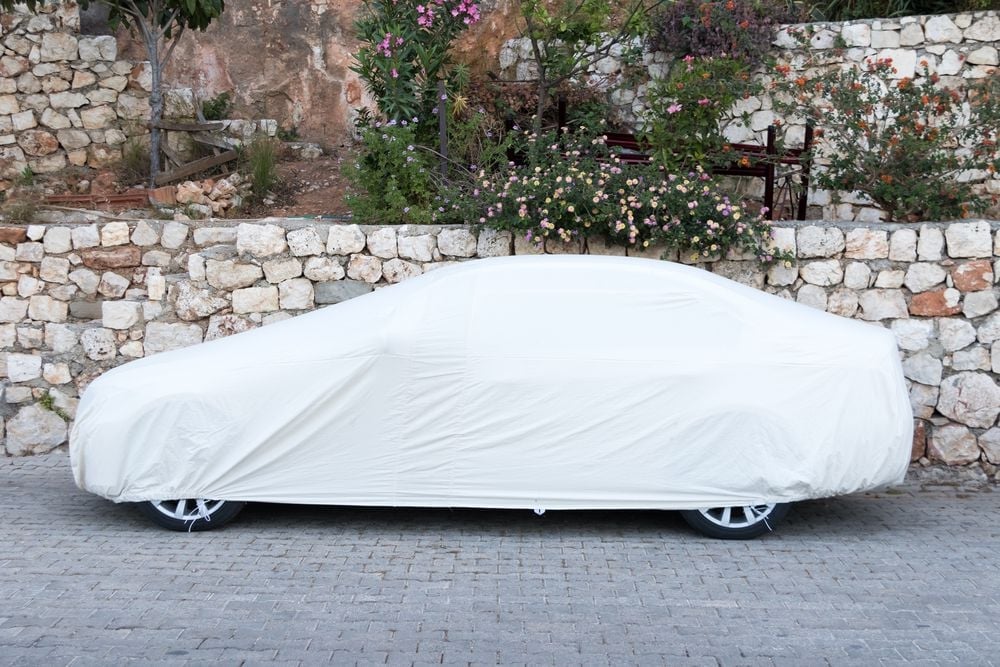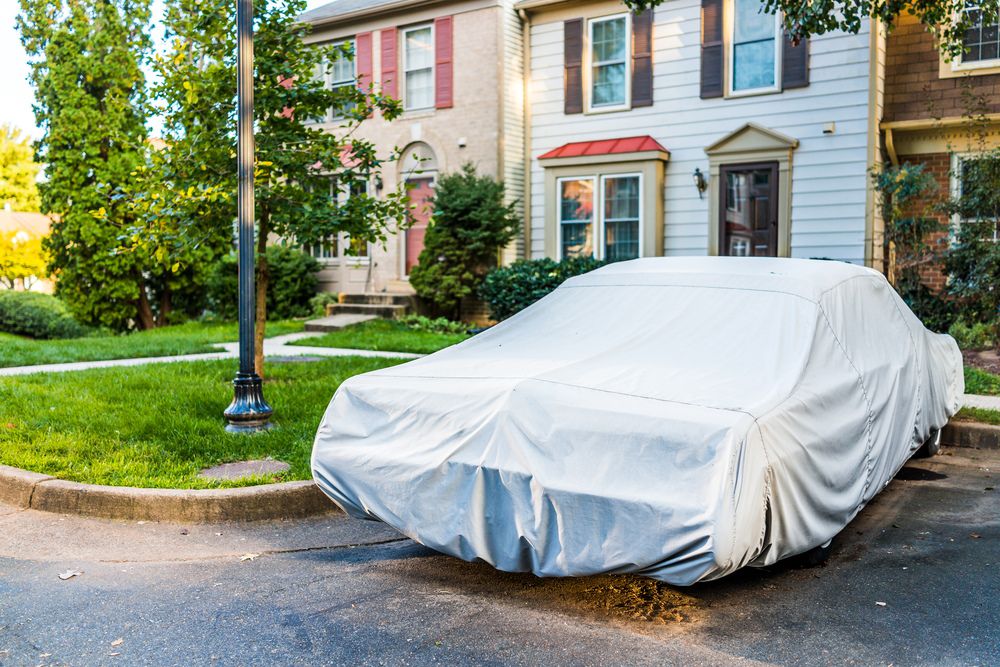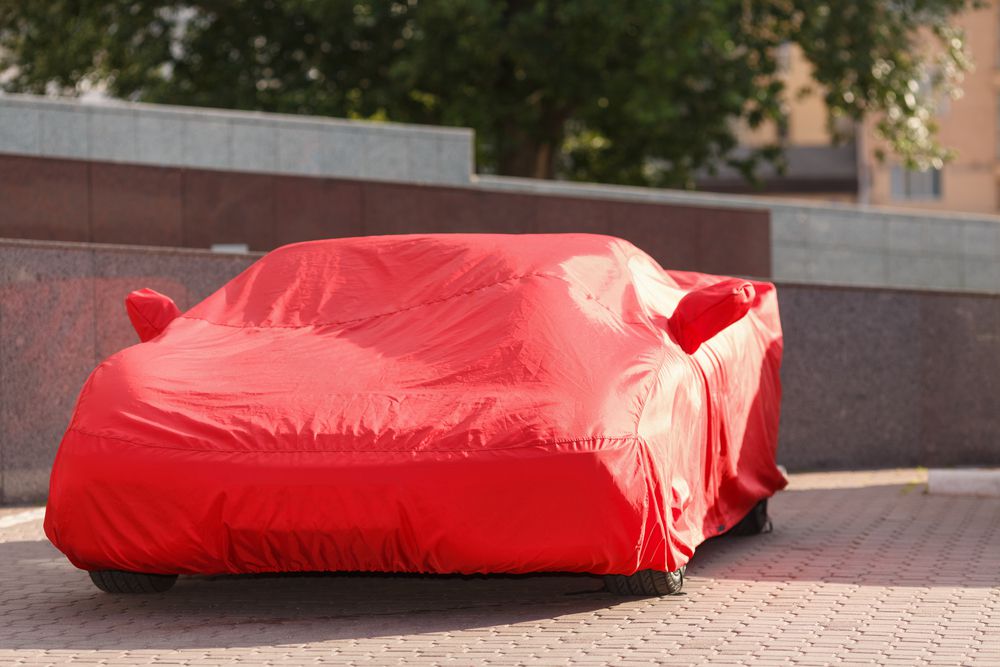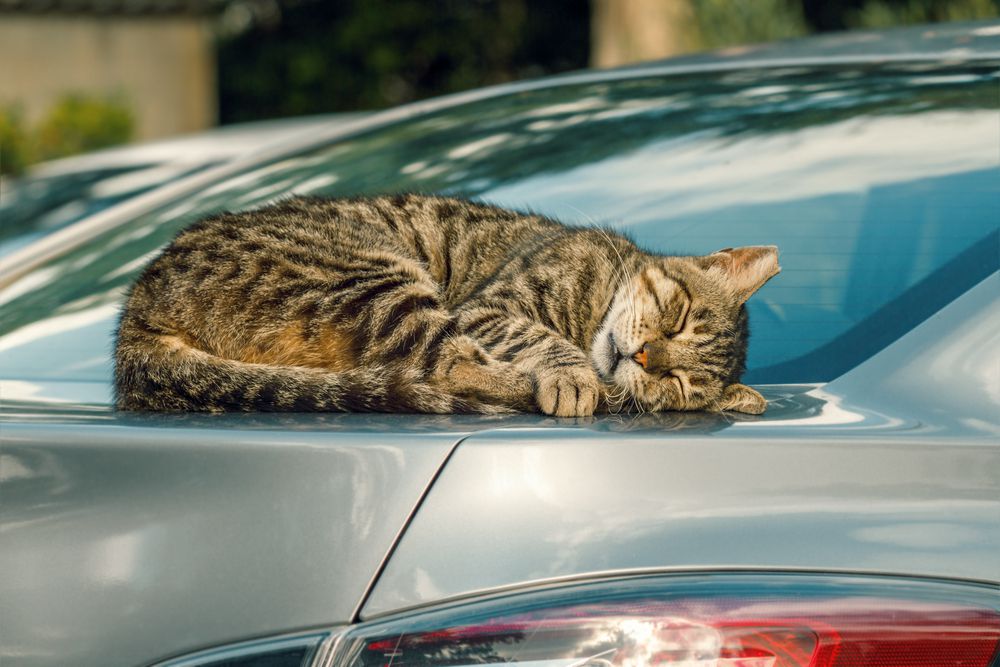
A high-quality car cover is well worth the price to protect your investment, but a car cover can also scratch your paint if improperly installed or the car is dirty.
Dirt and debris on the car's surface may be rubbed into the car's paint by a loose-fitting car cover.
Loose-fitting covers can rub dirt and debris over the car's paint from either the wind or someone rubbing up against the car.
 Well fitted car cover
Well fitted car cover
Do Car Covers Do More Harm Than Good?
You can significantly reduce the risk of scratches and other damage by getting a high-quality cover and keeping your car's body panels clean.
A well-fitted car cover does a great job of protecting against almost anything Mother Nature has to throw at them, like insects, bird droppings, and pollen, and discourages ne'er-do-well crooks from scouting your car for theft.
How to Prevent Car Cover Paint Scratching and Damage
Protecting your car cover from scratches and other types of damage is relatively simple.
The most important thing you can do is to wash your car well before installing the cover.
Dirt, salt, and other bits of grime will work together with the car cover to scratch the car's paint.
A car cover that moves across the car's body, perhaps from wind, will rub any dirt or other materials over the car's paint.
You won't have to worry about the cover damaging a clean car with a high-quality car cover that fits correctly.
 Loose fitting car cover
Loose fitting car cover
Choose the Right Material and Type for Your Car Cover
The ideal material for your car cover is a synthetic fabric outer layer to protect against the elements and a softer inner layer of cotton that makes contact with the car.
Cheaper single-material covers aren't ideal for long-term use.
You'll also need to note that if your car has an antenna, your car cover will need an appropriate hole for it.
Some specialty covers use a plastic sheet that creates a vacuum-sealed space to prevent dirt from getting on the car.
Clean Your Car and Cover Regularly
Cleaning your car is perhaps the most critical aspect of avoiding scratches.
If you have a dirty car, the cover may rub the dirt and debris into the car's paint if someone rubs up against the car cover or if the wind blows hard enough to move the cover.
Your cover will also need to be cleaned occasionally.
Follow the car cover manufacturer's directions when it comes to your car cover care, and take care not to introduce any grit, dirt, or debris onto the cover's inner surface while either cleaning or installing the cover.
 High-quality custom fitted car cover
High-quality custom fitted car cover
Make Sure That Your Cover Fits
A good fit is essential for avoiding scratches. The looser your car cover is, the more the wind can push the cover against the surface of your car, rubbing dirt into the paint and potentially damaging it.
Please ensure you get one suited for your type and size of vehicle and secure it properly when you use it.
That means stretching the cover over the vehicle nice and tight and using tie-downs properly.
Get a Waterproof Car Cover for Outdoor Use
A waterproof car cover is good for outdoor use. Still, you want to be careful since the waterproof nature of the car cover can trap water or moisture underneath the car cover and on the car's surface, possibly causing rust.
 Cat on car without car cover
Cat on car without car cover
Conclusion
As a whole, your car cover isn't going to scratch your paint as long as you get a good, high-quality one and secure it properly.
It will, however, possibly do more harm than good if it is not installed correctly by rubbing debris against your car's paint.
FAQ
Do Car Covers Cause Rust?
Car covers don't cause rust by themselves, but they may worsen underlying issues with your car.
If you're not maintaining your car properly by washing off any salts that cling to it, then a car cover will speed up the oxidation process and increase rust damage over time.
When Should You Put a Car Cover on?
It's almost always a good idea to use a car cover when storing your vehicle long-term.
A car cover is best used when you're expecting inclement weather. Thunderstorms, snow, hail, dust devils, and even city pollution in the form of smog are all excellent reasons to put a car cover on.
Should I Use a Car Cover in the Garage?
A soft car cover in a garage is still beneficial. The garage protects from weather, but it can't protect your car from dust.
A car cover will help keep your car clean inside a garage.
Should a Car Cover Be Left on in the Rain?
An all-weather car cover will protect your car perfectly fine in the rain.
Leaving your car cover on in the rain is a good idea to protect your wax coating and keep pollen off your car.
Most car covers are suited for use in rain, so leaving it on in the rain is a great idea as long as you have the right cover.
Should You Cover Your Car in the Winter?
Similarly to in the rain, an all-weather car cover is suitable for winter use.
Covering your car in the winter is good if you're expecting snow. Snow can create conditions for rust, so a good car cover can help stop snow from condensing on your car and speeding up oxidation.
Will a Car Cover Protect from Cat Scratches?
A cover will protect the car from cat scratches and is suitable if you've got some neighborhood felines who like to walk or lay on your car.